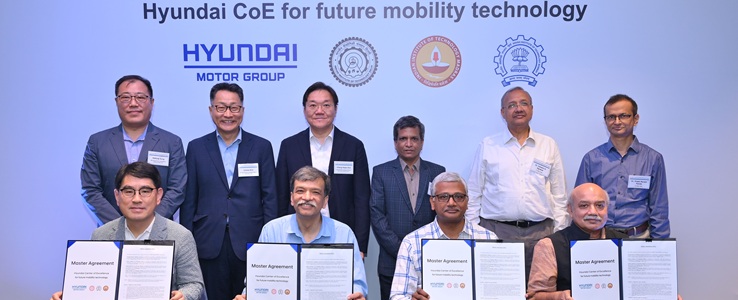South Korea’s Hyundai Motor Group has announced the opening of the Hyundai Center of Excellence for future mobility technology (Hyundai CoE) at the Indian Institute of Technology (IIT) Delhi. This initiative is establishing a joint research system to advance future mobility technologies focused on electrification and battery systems, reflecting Hyundai’s commitment to driving innovation tailored to the needs of Indian customers, the company said. Hyundai has selected nine joint research projects in collaboration with IITs as part of its long-term academic-industrial cooperation framework.
These projects cover key focus areas including battery cells, systems and testing, battery management systems (BMS), energy density enhancement, safety, durability and diagnostic technologies, according to a media release. The initiative also explores new materials and system components, driving forward innovation in battery design and performance. In parallel, Hyundai Motor Group is expanding its Future Technology Research Program, which has been in operation since 2021.

Unlike the general operation methods of academic-industrial projects, the program allows university faculty members to propose their own research topics, which are then reviewed and selected by Hyundai. Previously limited to domestic universities and Korean professors at overseas institutions, the program has been expanded to include foreign faculties beginning with professors at IITs. This marks a significant step in globalizing the Group’s academic collaboration efforts.
Starting with IIT Delhi, the Hyundai CoE will expand in phases to build an India-wide network of experts, connecting leading researchers and institutions across the country. Currently, Hyundai collaborates with three IITs (IIT Delhi, IIT Bombay and IIT Madras), engaging around 30 professors. By December 2025, it aims to expand its reach to 10 universities in India, including non-IIT institutions, with approximately 100 professors participating.
.
Technology

Hyundai opens battery research centre at IIT Delhi

This initiative is establishing a joint research system to advance future mobility technologies focused on electrification and battery systems.















